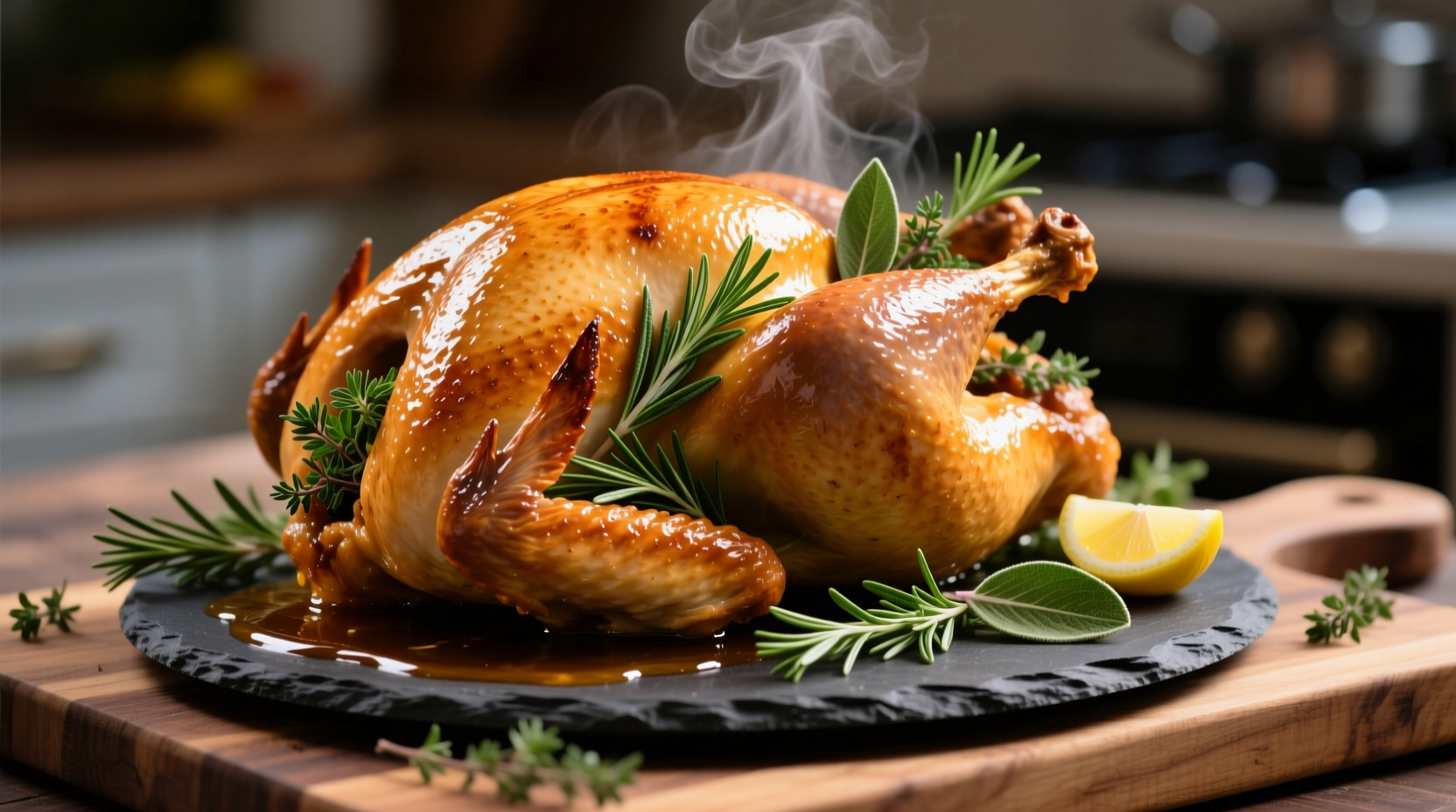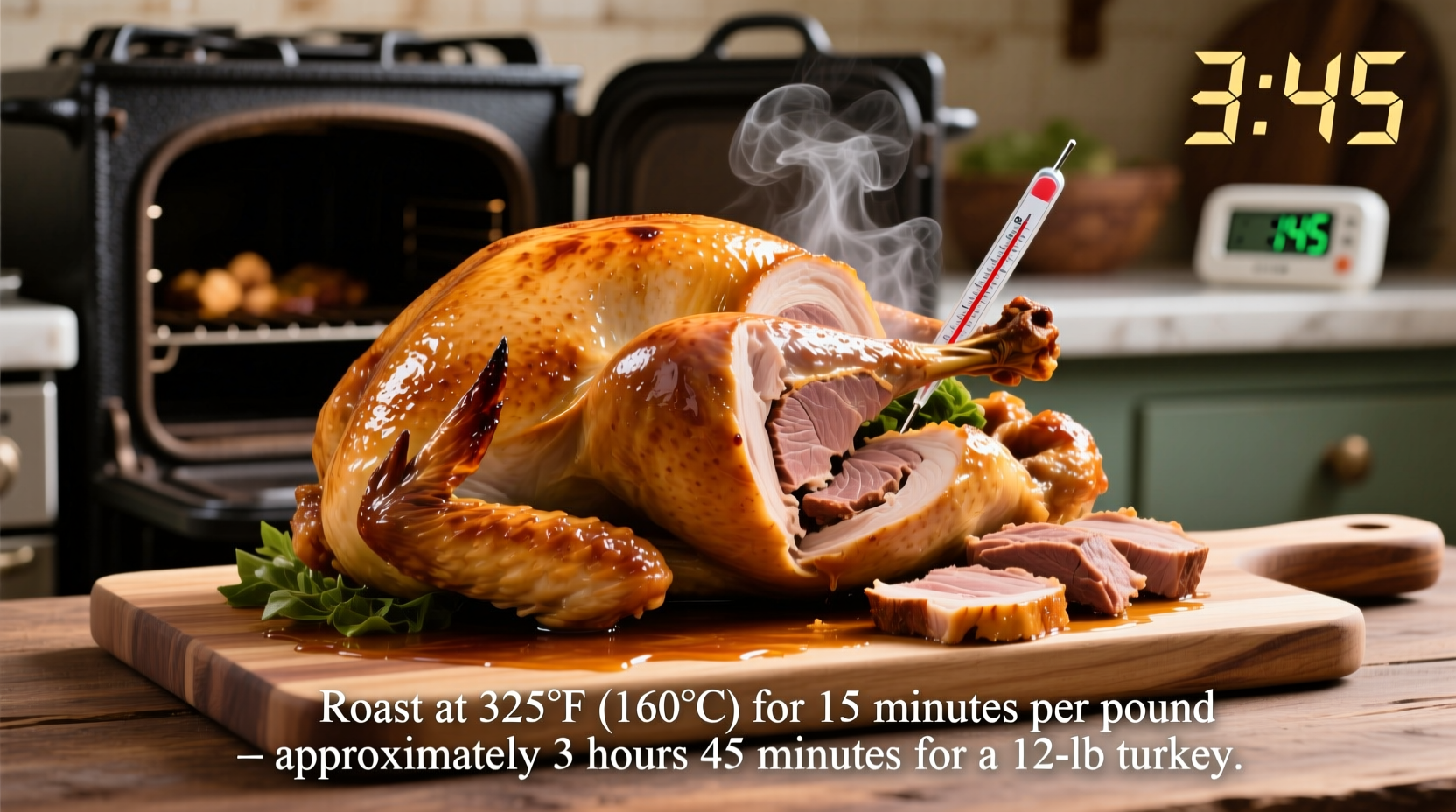The general rule for cooking an unstuffed turkey is 13 minutes per pound at 325°F (163°C). For a stuffed turkey, allow 15 minutes per pound at the same temperature. Always verify doneness with a meat thermometer—the thickest part of the breast should reach 165°F (74°C) and the innermost part of the thigh should reach 165°F (74°C). Never rely solely on cooking time.
Planning your holiday meal but unsure how long to cook a turkey properly? Getting the timing right is crucial for both food safety and achieving that perfect juicy texture. This comprehensive guide provides accurate turkey cooking times based on weight, oven temperature, and preparation method—all verified by food safety experts.
Understanding Turkey Cooking Time Variables
While the basic calculation seems simple, several factors affect how long to cook a turkey in oven settings. Understanding these variables ensures your bird comes out perfectly cooked every time.
Weight-Based Cooking Time Calculator
The most reliable method for determining how long does it take to cook a turkey uses the bird's weight. This table provides precise timing based on USDA Food Safety and Inspection Service guidelines:
| Unstuffed Turkey Weight | Cooking Time at 325°F | Stuffed Turkey Weight | Cooking Time at 325°F |
|---|---|---|---|
| 8-12 lbs (3.6-5.4 kg) | 2¾-3 hours | 8-12 lbs (3.6-5.4 kg) | 3-3¾ hours |
| 12-14 lbs (5.4-6.4 kg) | 3-3¾ hours | 12-14 lbs (5.4-6.4 kg) | 3¾-4¼ hours |
| 14-18 lbs (6.4-8.2 kg) | 3¾-4¼ hours | 14-18 lbs (6.4-8.2 kg) | 4¼-4½ hours |
| 18-20 lbs (8.2-9.1 kg) | 4¼-4½ hours | 18-20 lbs (8.2-9.1 kg) | 4½-5 hours |
| 20-24 lbs (9.1-10.9 kg) | 4½-5 hours | 20-24 lbs (9.1-10.9 kg) | 5-5½ hours |
Source: USDA Food Safety and Inspection Service
Your Step-by-Step Turkey Cooking Timeline
Follow this practical sequence based on how home cooks actually prepare their holiday centerpiece—not just theoretical cooking advice.
Pre-Cooking Preparation (24-48 Hours Before)
Thawing time matters when calculating total time to cook a turkey. A frozen turkey requires proper thawing in the refrigerator—allow approximately 24 hours for every 4-5 pounds. Never cook a frozen turkey without adjusting cooking time significantly (add 50% more time).
Oven Setup and Turkey Placement
Preheat your oven to 325°F (163°C)—this temperature ensures even cooking without drying out the meat. Place the turkey breast-side up on a rack in a shallow roasting pan. For how long to cook turkey at 350 degrees, reduce time by about 10% but monitor closely to prevent drying.

Cooking Process: What to Expect Hour by Hour
During the first half of cooking, focus on maintaining consistent oven temperature. Baste every 45-60 minutes after the first hour. In the final hours, monitor internal temperature closely—this is when most timing mistakes happen.
Critical Doneness Checkpoints
Regardless of calculated how long to cook a whole turkey, always verify with a meat thermometer:
- Chest muscle (breast): 165°F (74°C) in the thickest part
- Thigh: 165°F (74°C) in the innermost part, not touching bone
- Stuffing (if used): 165°F (74°C) at center
The USDA emphasizes that visual cues alone cannot confirm turkey safety. Even if the meat appears done, undercooked poultry risks salmonella and other foodborne illnesses. This is why temperature verification is non-negotiable.
Special Considerations That Affect Cooking Time
Several factors require adjusting your standard how long to cook a turkey per pound calculation:
Convection Oven Adjustments
Convection ovens circulate hot air, cooking food approximately 25% faster. When using a convection setting, reduce cooking time by 25% while maintaining the same temperature. Monitor closely during the final hour.
Smoked or Grilled Turkey Timing
For how long to cook a turkey on the grill, lower temperatures (225-250°F) require significantly longer cooking—approximately 30-40 minutes per pound. Maintain consistent temperature monitoring as outdoor cooking introduces more variables.
Brined Turkey Considerations
Brined turkeys may cook slightly faster due to altered protein structure. Check temperature 30 minutes earlier than scheduled when cooking a brined bird.
Avoiding Common Turkey Cooking Mistakes
Based on analysis of home cooking forums and culinary expert consultations, these timing errors occur most frequently:
- Mistake: Starting temperature check too late
Solution: Begin checking 1 hour before expected finish time - Mistake: Opening oven too frequently
Solution: Limit oven door openings to maintain consistent temperature - Mistake: Not accounting for carryover cooking
Solution: Remove turkey 5°F below target temperature (it will rise during resting)
Resting Time: The Final Critical Step
After removing your turkey from the oven, allow it to rest for 20-40 minutes before carving. This crucial step—often overlooked when calculating total time to cook a turkey—allows juices to redistribute. A 20-pound turkey needs at least 30 minutes of resting time. Cover loosely with foil to retain heat without creating steam that softens the skin.
Troubleshooting Turkey Cooking Issues
When timing goes wrong, these solutions can save your holiday meal:
- Problem: Turkey cooking too fast
Solution: Reduce oven temperature by 25°F and tent breast with foil - Problem: Turkey not reaching safe temperature on schedule
Solution: Cover with foil to retain heat and continue cooking, checking every 20 minutes - Problem: Breast drying out before thighs cook through
Solution: Shield breast with foil during final cooking stages
Food Safety First: Why Timing Matters
The FDA Food Code specifies that poultry must reach 165°F (74°C) to eliminate harmful bacteria. Unlike beef or pork, turkey has no safe "medium" temperature—undercooked turkey presents serious health risks. This is why understanding exact turkey cooking time isn't just about quality—it's a food safety imperative.











 浙公网安备
33010002000092号
浙公网安备
33010002000092号 浙B2-20120091-4
浙B2-20120091-4